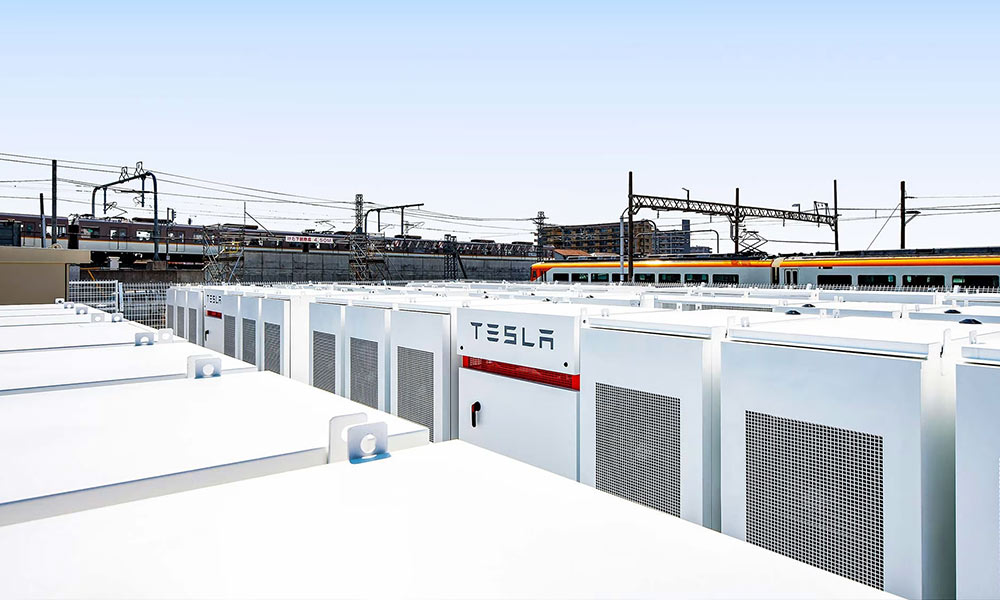Trusted by
Efficient Commercial Solar Batteries
Looking to harness sustainable energy and cut utility costs? Maximise self-generated electricity and control your overheads with solar battery support.
At Sustainable Savings, our cutting-edge solutions provide efficient storage for surplus solar energy generated during the day, ensuring a continuous power supply even when the sun sets.
You can reduce reliance on the grid and take control of your energy consumption with reliable storage systems tailored to your business needs. Whether it’s enhancing energy independence, lowering operational expenses, or reducing your carbon footprint, our commercial solar batteries offer a strategic and eco-friendly solution.
Experience the benefits of clean energy by getting in touch on (08) 7120 6366 for an obligation-free quote today.
What Are The Best Types Of Commercial Solar Batteries?
Struggling to find the best solar batteries for your business? More choice can make things harder, not easier, so here’s an overview of the market-leading options.
Lithium-ion batteries are popular for their high energy density, longer lifespan, and rapid charging capabilities. Tesla Powerwall is a well-known choice, known for its reliability and compatibility with solar systems. The sonnenBatterie offers advanced features like smart energy management. SimpliPhi Power batteries are prized for their safety and longevity. Additionally, BYD B-Box is recognised for its modular design.
If you’re unsure, we’ll help you assess factors such as capacity, efficiency, warranty, and integration with existing systems to determine the optimal battery option for you.
What Factors Affect The Cost Of Commercial Solar Batteries?
The cost in South Australia can vary widely depending on several factors. The battery capacity, brand, technology, installation complexity, and any additional equipment required all play a role in determining the cost.
For a quote that’s tailored to your needs, reach out on (08) 7120 6366 to learn more.

Commercial Solar Battery Benefits
Energy Cost Savings: By storing excess solar energy during the day and using it during peak demand or at night, your business can reduce their reliance on grid electricity, resulting in significant cost savings over time.
Energy Independence: They enable you to generate and store your own energy, reducing dependence on external energy sources and fluctuations in grid prices.
Grid Resilience: During power outages or grid failures, solar batteries can provide a backup power supply, ensuring uninterrupted operations and critical systems functionality.
Environmental Impact: Utilising solar energy reduces carbon emissions and supports sustainability goals, promoting a greener image for businesses.
Demand Charge Management: Businesses can mitigate high demand charges imposed by utility companies by drawing stored energy during peak demand periods.
Financial Incentives: You may be eligible for incentives, tax credits, or subsidies for installing commercial solar batteries, improving your overall ROI.
Long-Term Investment: While there’s an initial cost, solar batteries offer a long lifespan, providing consistent energy savings and returns on investment over their operational life.
Grid Support: Solar batteries can assist in stabilising the grid by providing excess energy during periods of high demand, contributing to a more reliable energy infrastructure.
Scalability: Commercial solar battery systems can be scaled up over time to meet growing energy needs, allowing businesses to adapt as their requirements change.
Marketability: Businesses with a strong commitment to sustainability and clean energy practices can use their adoption of commercial solar batteries as a marketing advantage, appealing to environmentally conscious customers.
What Is The Installation Process For Commercial Solar Batteries?
The installation process for a solar battery system generally involves several key steps:
Step One: Site Assessment – A solar professional visits your business premises to evaluate the site’s suitability for solar battery installation. They assess factors such as available space, sunlight exposure, and electrical infrastructure.
Step Two: System Design – Based on the site assessment, the solar provider designs a system that includes the appropriate solar panels, inverters, and battery storage capacity to meet your energy needs.
Step Three: Permitting and Approvals – The installation process often requires obtaining necessary permits and approvals from local authorities. Your solar provider should handle these administrative tasks on your behalf.
Step Four: Solar Panel Installation – If you don’t have solar panels installed already, this step involves mounting solar panels on your roof or other suitable areas to capture sunlight and generate electricity.
Step Five: Inverter Installation – Solar inverters are installed to convert the generated DC (direct current) electricity into AC (alternating current) electricity, which is suitable for powering your business and charging the batteries.
Step Six: Battery Installation – They are positioned and connected according to the system design. Wiring and connections are carefully established to ensure safe and efficient energy storage.
Step Seven: Electrical Wiring – Proper electrical wiring is crucial to connect the solar panels, inverters, batteries, and your business’s electrical system. This step requires expertise to ensure safety and compliance with electrical codes.
Step Eight: System Testing – Once the components are installed and wired, the system undergoes thorough testing to ensure all components are functioning as intended and the system can generate, store, and distribute energy effectively.
Step Nine: Configuration and Monitoring – Solar battery systems often come with monitoring capabilities that allow you to track energy production, storage levels, and consumption patterns. The system may be configured for optimal performance based on your usage patterns.
Step Ten: Final Inspection and Approval – Depending on local regulations, a final inspection may be required to ensure the installation meets safety and quality standards.
Step Eleven: System Commissioning – After receiving the necessary approvals, the system is commissioned, and you can start benefiting from solar-generated energy and stored power.
How Long Do Commercial Solar Batteries Typically Last?
The lifespan of commercial solar batteries in South Australia can vary based on factors such as the battery technology, usage patterns, maintenance, and the specific brand and model.
- Lithium-Ion Batteries: Lithium-ion batteries, which are commonly used in commercial solar applications, typically have a lifespan of around 10 to 15 years. However, advancements in technology and proper maintenance can potentially extend their life.
- Lead-Acid Batteries: Lead-acid batteries, though less common in commercial solar installations due to their lower energy density, can last around 5 to 10 years. They require more maintenance and have a lower depth of discharge compared to lithium-ion batteries.
- Flow Batteries: Flow batteries, although not as widely used, can offer longer lifespans. Some flow battery systems claim lifespans of up to 20 years or more. However, these systems are generally larger and more complex.
- Solid-State Batteries: Solid-state batteries, an emerging technology, have the potential to last longer than traditional lithium-ion batteries. While still in development, they could offer significantly extended lifespans.
It’s important to note that while a battery’s lifespan is an essential consideration, other factors like efficiency, capacity retention over time, and warranty coverage also play a crucial role in determining the overall value of a commercial solar battery system.











